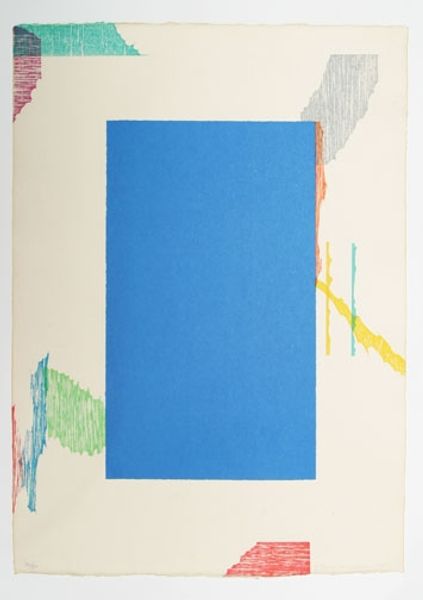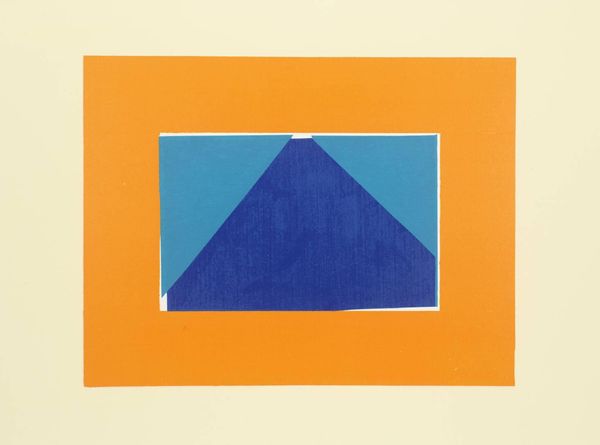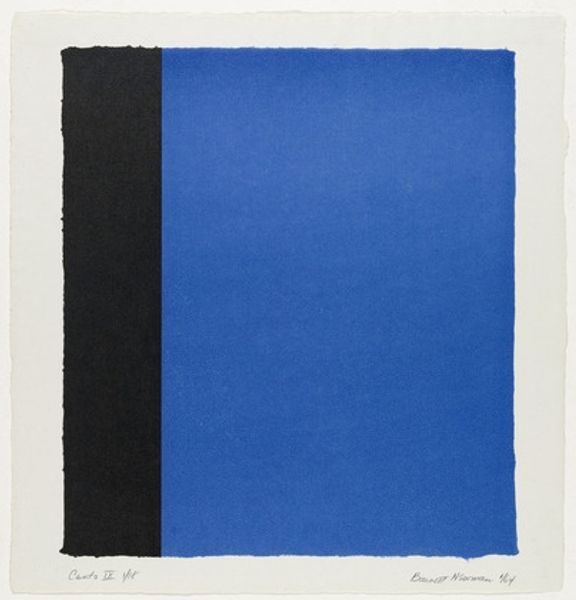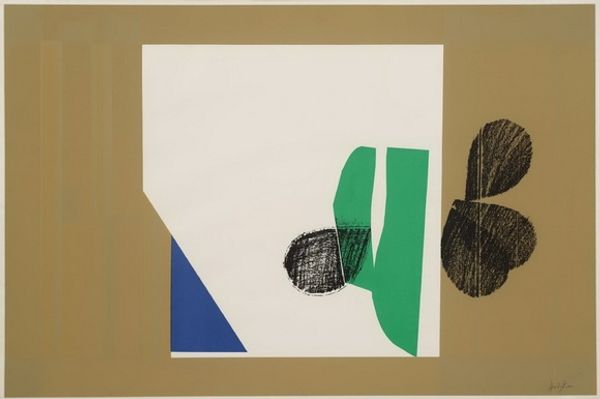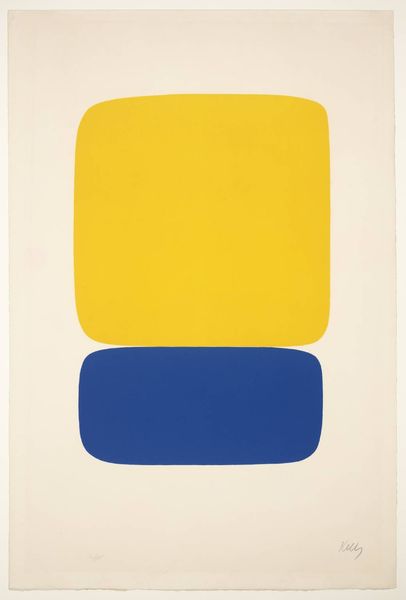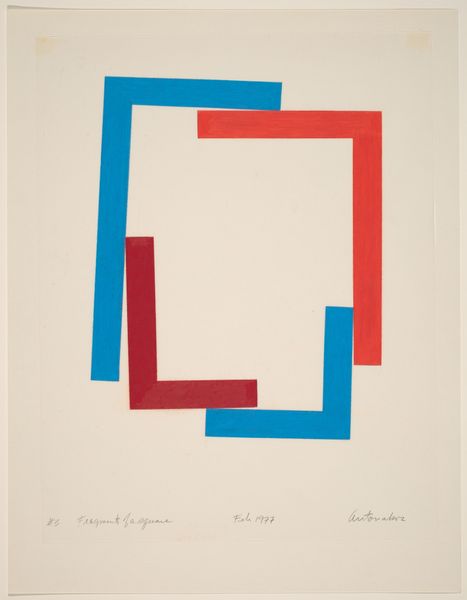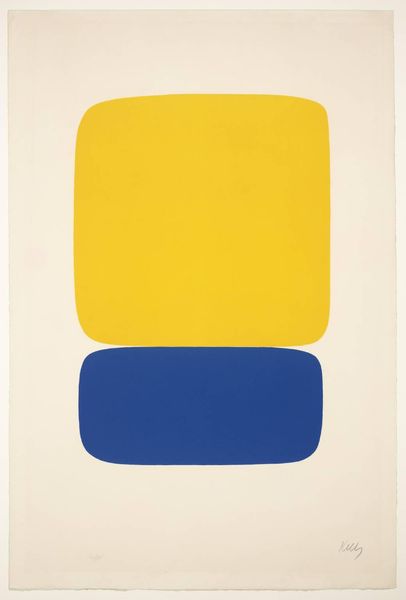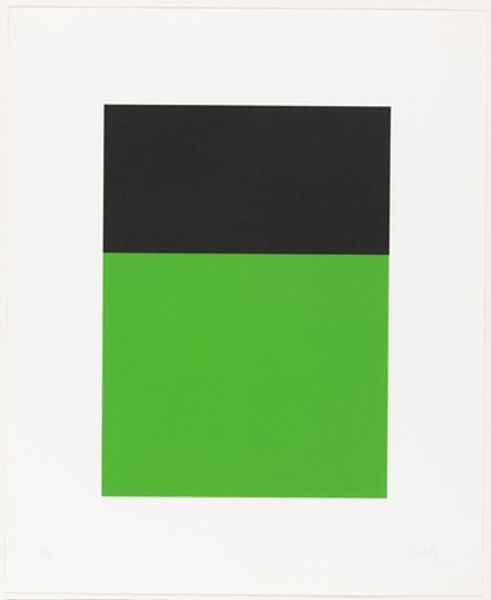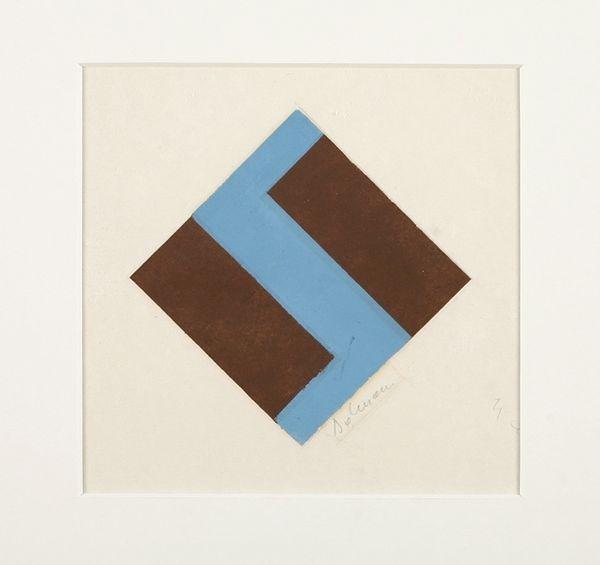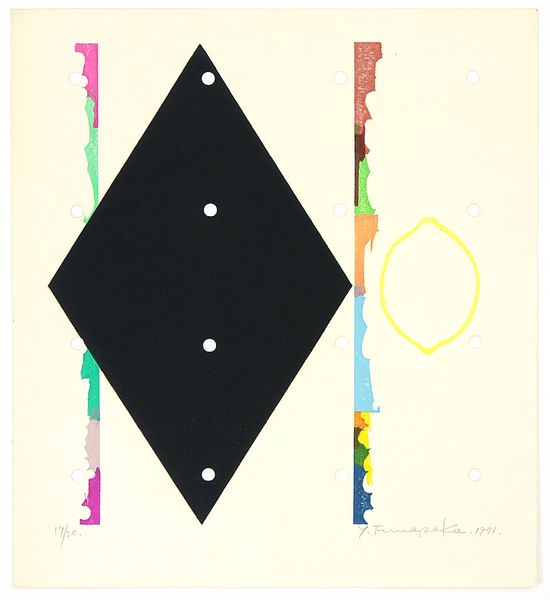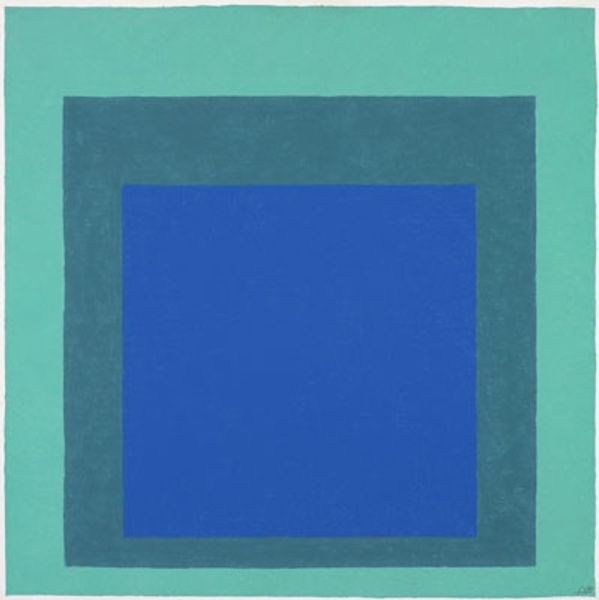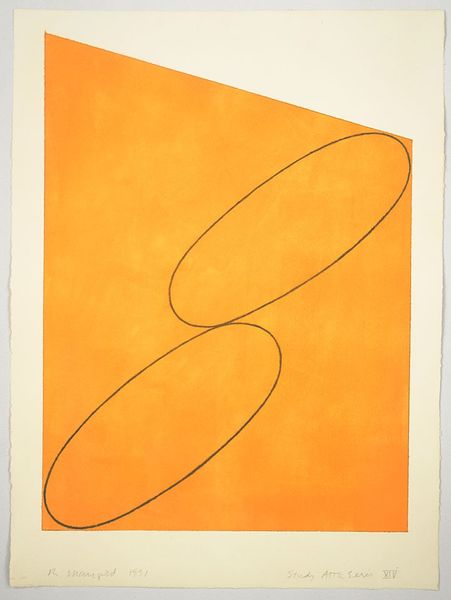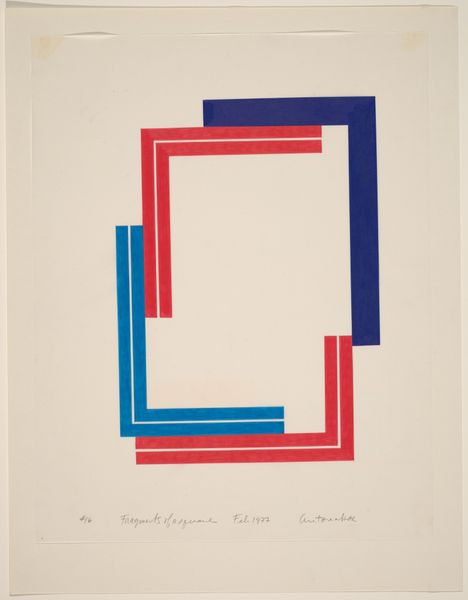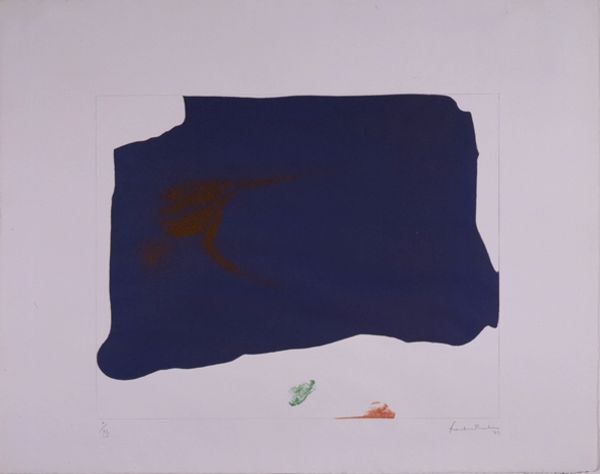
Copyright: Funasaka Yoshisuke,Fair Use
Yoshisuke Funasaka's "985" presents us with a stark blue square bisected by a white shape, its edges playfully fringed with various colors. The square, a symbol of stability and order, has been a fixture in art since antiquity, representing the rational mind and the earthly realm. Think back to Malevich's "Black Square," an icon of modernist abstraction, or even further to the geometric foundations of classical architecture. Here, the square confronts its antithesis: an ambiguous shape. The interplay is not merely formal; it sparks a subconscious recognition of the delicate balance between control and chaos. The vibrant, irregular border hints at the Dionysian spirit lurking beneath Apollonian restraint. This tension, you see, is a recurring theme in the human psyche, and consequently, in art. It echoes the constant negotiation between the conscious and unconscious, order and the absurd, that defines our very existence. Funasaka reminds us that within every structured form lies the potential for joyous, unpredictable liberation.
Comments
No comments
Be the first to comment and join the conversation on the ultimate creative platform.
